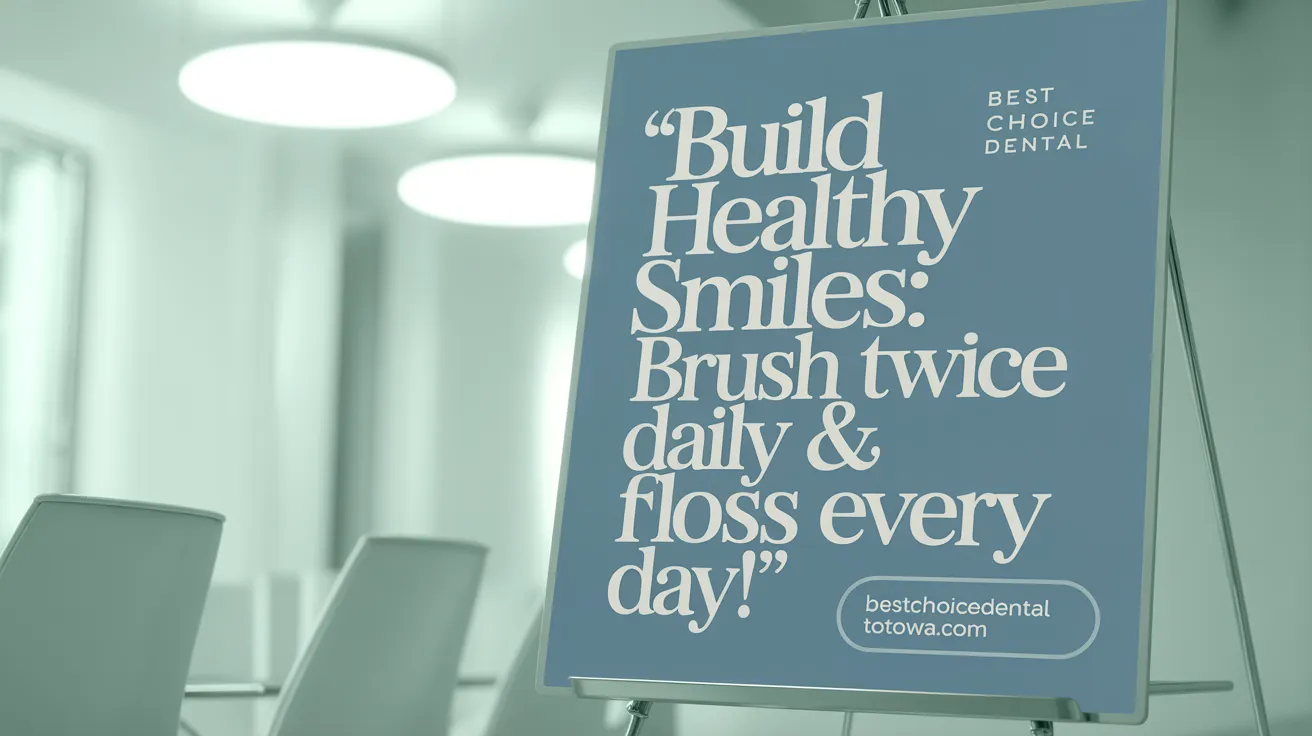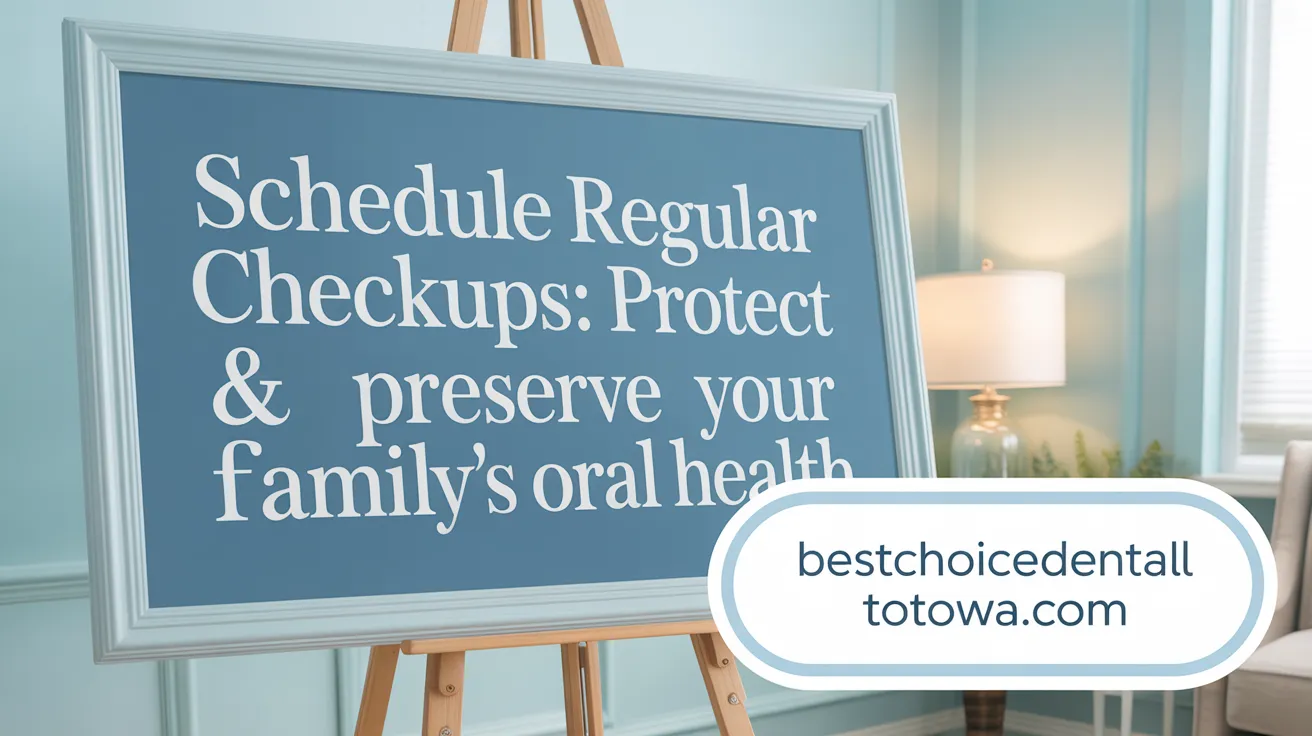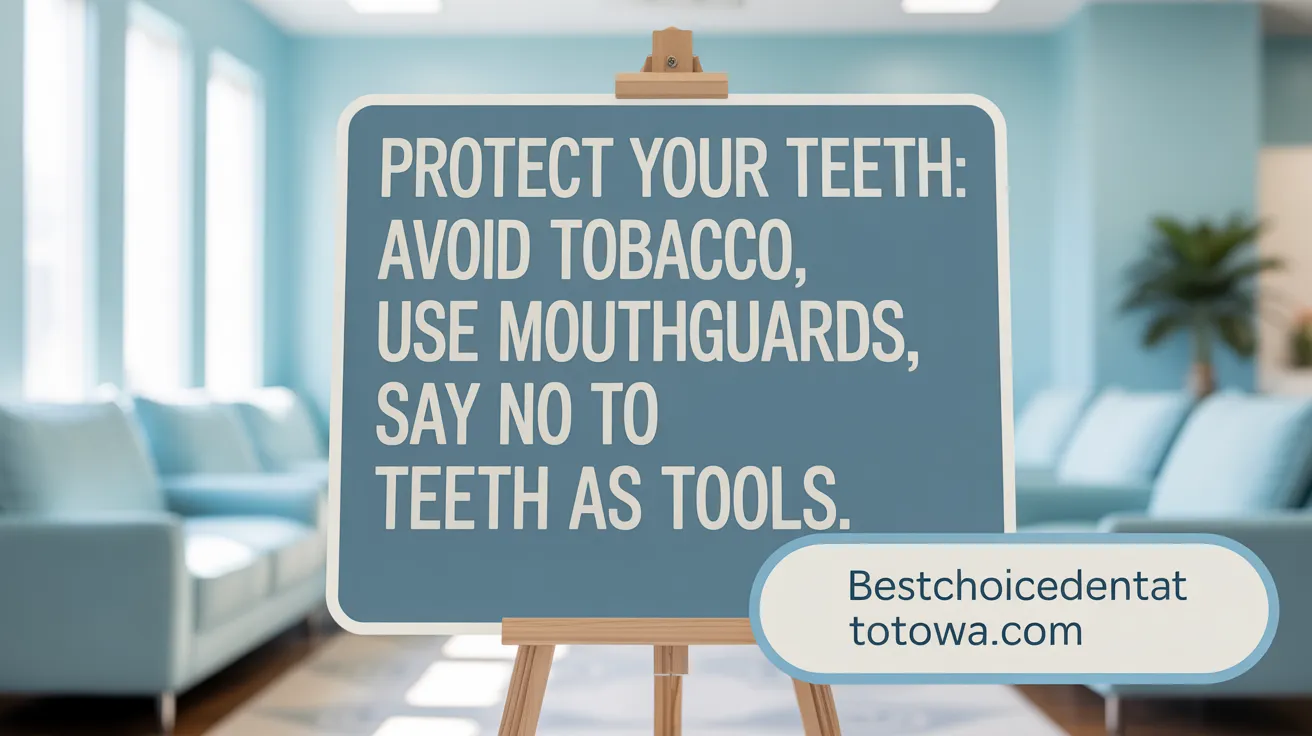Why Family Dental Care Habits Matter
Importance of Family Dental Care Habits
A consistent family dental care routine lays the foundation for healthy teeth and gums for all ages. Brushing twice daily with fluoride toothpaste and flossing once daily removes plaque and prevents decay and gum disease. Families who practice good oral hygiene together promote positive habits and reduce dental problems.
Long-term Benefits of Good Oral Hygiene Habits
Establishing daily brushing and flossing routines early helps prevent cavities, gum disease, and costly dental treatments later. Regular dental visits enable early problem detection, saving time and money. Healthy oral habits also contribute to fresher breath, an attractive smile, and overall well-being, reducing risks linked to oral infections.
Role of Early Dental Routines
Introducing proper dental care from infancy—such as wiping gums and brushing emerging teeth—supports early prevention. Visiting the dentist by age one familiarizes children with dental care and helps parents learn proper techniques. Early routines cultivate lifelong habits that maintain oral health throughout childhood into adulthood.
Key Facts on Family Oral Health
- Family members should brush twice daily with fluoride toothpaste and floss daily to remove plaque and food debris.
- Effective brushing involves gentle circular motions covering all tooth surfaces and brushing the tongue to reduce bacteria.
- Replace toothbrushes every 3 to 4 months or sooner if frayed to maintain effective cleaning.
- A healthy diet rich in fruits, vegetables, dairy, and lean proteins supports strong teeth and gums, while limiting sugary and acidic foods reduces decay risk.
- Regular dental visits every six months are essential for professional cleanings, early detection of problems, and preventive care.
- Establishing early dental care from first birthday or first tooth eruption helps prevent fear and ensures good dental development.
- Avoid harmful habits like tobacco use, excessive alcohol, and using teeth as tools to prevent dental injuries and health issues.
- Protect teeth during sports by wearing mouthguards; manage teeth grinding with nightguards and avoid damaging habits.
- Minimize children's exposure to secondhand smoke to reduce the risk of cavities and other oral health problems.
- Parents should assist and supervise children’s brushing and flossing until about age 6-8 and make oral care routines engaging and routine.
1. Consistent Brushing and Flossing for All Ages

How often should family members brush and floss?
Family members should brush their teeth at least twice daily, using fluoride toothpaste and a soft-bristled toothbrush held at a 45-degree angle towards the gums. Brushing for at least two minutes ensures thorough cleaning to remove plaque and bacteria. Daily flossing is equally important as it removes plaque and food debris in areas that toothbrushes cannot reach, particularly between the teeth and along the gumline (Daily flossing importance).
What technique should be used for brushing?
Effective brushing involves gentle, small circular motions that cover all tooth surfaces — front, back, and chewing surfaces — as well as brushing the tongue to reduce bacteria and freshen breath. This thorough approach helps prevent cavities, gum disease, and bad breath (Oral hygiene best practices.
Additional tips for optimal brushing and flossing
- Replace your toothbrush every 3 to 4 months or sooner if bristles are frayed to maintain effective cleaning (Replace toothbrushes regularly).
- Use fluoride toothpaste to strengthen enamel and aid in cavity prevention (Using fluoride toothpaste.
- Teach and assist children with their brushing until they achieve good manual dexterity, typically around age 6 to 8 (Oral Health Tips for Children).
- For children, use a small amount of fluoride toothpaste and a child-sized, soft-bristled brush (Brushing children's teeth twice a day).
- Encourage regular flossing habits as soon as children's teeth begin to touch (Daily flossing importance.
Following these consistent and proven oral hygiene practices supports the whole family's dental health, fostering lifelong habits for a brighter smile and healthier gums.
2. Encouraging Healthy Dietary Habits to Support Oral Health

How does diet affect family oral health?
Eating a balanced diet plays a vital role in maintaining healthy teeth and gums for the whole family. Including crunchy fruits and vegetables, dairy products, and lean proteins provides essential nutrients that strengthen tooth enamel and support gum health.
Fluoridated water is another crucial factor; it helps remineralize teeth and prevent decay throughout the day. Drinking plenty of water also aids in cleansing the mouth and promoting saliva production, which naturally neutralizes acids and removes food particles.
To protect oral health, it's important to limit the intake of sugary, sticky, and acidic foods and drinks. These substances contribute to cavity development and enamel erosion by feeding harmful bacteria and weakening tooth structure. Avoiding frequent consumption of sugary snacks, sodas, and acidic beverages can significantly reduce the risk of tooth decay and gum disease.
By adopting these healthy dietary habits, families can support strong, healthy smiles and reduce the need for extensive dental treatments. Encouraging good nutrition alongside regular dental visits ensures a comprehensive approach to oral health care.
3. Regular Professional Dental Visits for Prevention and Early Detection

Why are regular dental visits important for families?
Routine dental visits every six months play a crucial role in maintaining oral health for the entire family. These checkups provide professional cleanings that remove plaque and tartar build-up beyond the reach of daily brushing and flossing. Early detection of issues such as cavities, gum disease, or other oral health problems helps prevent progression and allows for timely intervention. The importance of early dental visits is particularly emphasized for children to ensure a healthy dental foundation.
What services are typically provided during dental checkups?
Professional visits include thorough examinations often combined with X-rays to assess teeth and gums deeply. Preventive treatments such as fluoride applications and dental sealants for cavity prevention protect enamel and reduce the risk of decay, particularly in children. Personalized care plans are developed based on individual needs, ensuring each family member receives appropriate attention and guidance. For more about these preventive dental care advantages, see relevant resources.
What is the importance of early dental visits for children?
Establishing dental visits from the first birthday or within six months of a child's first tooth eruption helps familiarize children with the dental environment, easing anxiety and promoting positive attitudes towards dental care. Regular visits support monitoring of dental development, early identification of potential concerns, and reinforcement of good oral hygiene habits from an early age. Refer to Oral Health Tips for Children for more guidance.
When should families seek dental advice outside routine visits?
Warning signs such as tooth pain and bleeding gums or swollen gums, loose teeth, or chronic bad breath should prompt immediate dental consultation. Addressing these symptoms early prevents complications and supports overall oral health.
Regular professional dental visits complement daily proper oral hygiene practices and are essential for comprehensive care. Family dental practices, such as Heine Family Dental, offer tailored scheduling and personalized treatment strategies to support each member’s unique needs throughout their lifetime.
4. Avoiding Harmful Habits and Protecting Teeth

What harmful habits should families avoid for oral health?
Avoiding tobacco use for oral health and limiting alcohol consumption are crucial to maintaining healthy teeth and gums. Tobacco use increases the risk of gum disease, oral cancer, teeth staining, and bad breath. Similarly, excessive alcohol intake can cause dry mouth and elevate the risk of oral cancers.
How can families protect teeth during sports and daily activities?
Wearing mouthguards during sports or high-impact activities helps prevent dental injuries by cushioning teeth against trauma. Mouthguards are especially important for children and adults engaged in contact sports.
What about managing teeth grinding?
Teeth grinding, or bruxism, can cause significant wear and damage to teeth over time. Using nightguards or seeking dental advice helps manage this habit, protecting tooth enamel and preventing jaw discomfort.
Why should families avoid using teeth as tools?
Using teeth to open bottles or tear packaging can result in chips, cracks, or other dental injuries. It’s essential to use appropriate tools rather than teeth to prevent damage.
How does secondhand smoke affect children's oral health?
Exposure to secondhand smoke increases the risk of cavities and other oral health issues in children. Minimizing this exposure supports healthier teeth and gums for young family members (Keeping Your Child's Teeth Healthy).
By steering clear of these harmful habits and incorporating protective measures, families can better maintain their oral health and enjoy a strong, bright smile for life.
5. Teaching and Modeling Good Oral Hygiene Habits Together
How can families encourage children to maintain good dental habits?
Encouraging children to keep up good dental habits starts with active parental involvement. Parents should assist their children with brushing and flossing, especially until the kids develop proper skills, usually around age 6 to 8. This hands-on guidance ensures effective plaque removal and builds confidence.
Making oral care enjoyable is another powerful motivator. Families can incorporate games, songs, or use child-friendly timers to engage children during the two-minute brushing routine. Fun activities coupled with praise help create positive associations with oral hygiene.
Setting consistent family routines also plays a crucial role. Brushing and flossing together at designated times, like morning and bedtime, builds structure and reinforces the importance of daily care. When children observe parents prioritizing oral health, they are more likely to adopt similar habits.
Parental guidance remains vital throughout early childhood and beyond. Continuous supervision and encouragement ensure habits are performed correctly. Additionally, scheduling regular dental visits fosters a proactive attitude and helps detect issues early.
By involving children in brushing and flossing alongside making oral care fun and routine, families can successfully build strong lifelong dental health habits. This supportive environment empowers children to maintain their oral hygiene confidently into adulthood.
Building Strong Smiles Starts at Home
Establishing Healthy Family Dental Habits
Good oral health begins with daily home care. Brushing teeth twice daily with fluoride toothpaste and flossing once a day are foundational habits. Eating a balanced diet low in sugary foods supports dental health, while limiting snacks and drinks that cause decay helps protect teeth. Encouraging children to adopt proper brushing and flossing techniques from a young age sets the stage for lifelong healthy smiles.
The Long-Term Benefits of Consistent Oral Care
Maintaining consistent oral hygiene prevents cavities, gum disease, and bad breath, preserving natural teeth well into adulthood. Healthy teeth support clear speech and proper chewing, enhancing overall wellbeing. Early adoption of good habits reduces the need for extensive dental treatments, saving time, discomfort, and costs.
Teamwork Between Home Care and Professional Dental Visits
Routine dental checkups complement daily oral hygiene by allowing early detection and treatment of issues. Professionals provide cleanings, fluoride treatments, and personalized advice tailored to each family member’s needs. This collaboration ensures a comprehensive approach to dental health that fosters lasting, strong smiles for the whole family.
